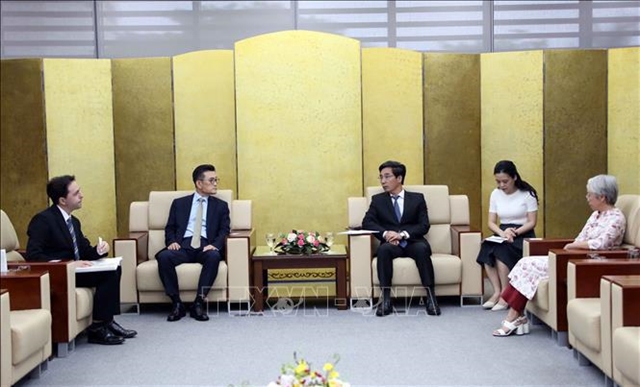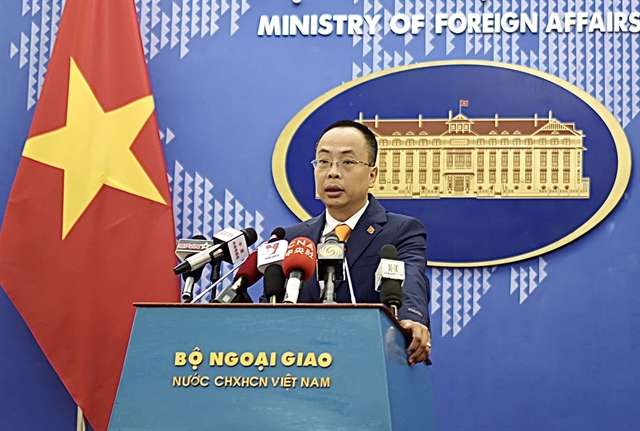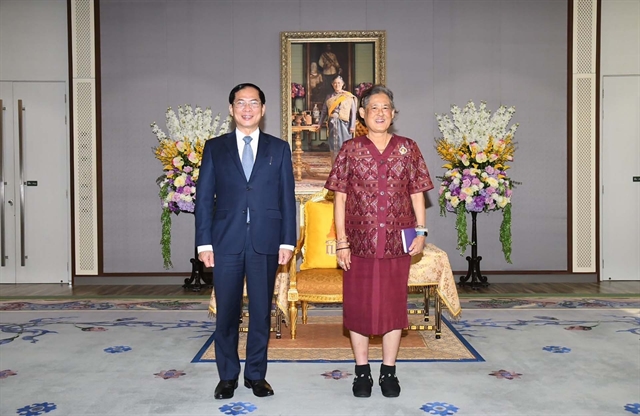 Opinion
Opinion

Finance Minister Đinh Tiến Dũng talks with the Hà Nội Mới (New Hà Nội) newspaper about financial and budget works this year.
 |
| Finance Minister Đinh Tiến Dũng. — Photo hanoimoi.vn |
Finance Minister Đinh Tiến Dũng talks with the Hà Nội Mới (New Hà Nội) newspaper about financial and budget works this year.
For the first time in 10 years, Việt Nam has succeeded in controlling budget over-expenditures. This helped reduce public debt to 61.3 per cent, from 63.6 per cent of GDP late last year. Could you tell us what solutions were put in place to control public debt?
In the situation of public debt rising quickly, the pressure was how to ensure public debt safety and investment for development.
Therefore, completion of legal regulations was a priority for the financial sector.
Following the Politburo’s resolution, issued in 2016, on orientations and measures to restructure the state budget, manage public debts to safeguard the national finance in a safe and sustainable manner, the Ministry of Finance submitted to the National Assembly for approval of the revised Law on Public Debt Management.
The revised law, passed in November last year, regulates new items, such as tightening conditions of granting government guarantees, setting aside budgets for major projects, and detailed public debt management.
Public debt stipulated in this law includes Government debt, government guaranteed debt and local government debt.
Also, management of budget overspending was tightly monitored. A roadmap of cutting budget overspending was set to control the ceiling of public debt by cutting rates of 3.5 per cent in 2017, 3.7 per cent in 2018, 3.6 per cent in 2019 and 3.4 per cent in 2020.
Other measures were to promote inspection and public financial transparency, especially tightly controlling public investment, and to complete legal frameworks on investment, bidding, inspections and audits.
Initially, these measures helped reduce the public debt to 61.3 per cent of GDP, and Government debt to 51.6 per cent lower than the rates set by the National Assembly of 65 per cent and 54.5 per cent, respectively.
In late last year, the risk of a budget imbalance was possible because budget revenues were less. Are there any measures to overcome these difficulties?
Last year was not the first year the financial sector faced challenges to balance the budget.
Thus, in the very first month of this year, the Finance Ministry had allocated financial plans to each unit, right after the National Assembly approved the budget.
Basic measures to increase budget revenues were meant to promote economic development via reforming administrative procedures and creating favourable conditions for businesses.
The financial setor has co-operated with other ministries and agencies to carry out measures to help businesses expand production and operation.
Tax and customs agencies have pushed for the simplification of administrative procedures and modernisation to save time and money for people and businesses.
These measures have been working to help businesses increase their competitiveness, as well as creating fairness in approaching business and capital opportunities.
Business doing well results in fast economic development. This would cause the State budget revenues to increase.
Along with creating favourable conditions for businesses, the financial sector has improved tax collections.
Last year, State budget revenues reached VNĐ1.283 trillion (US$56.4 billion), 5.9 per cent higher than the set plan.
The year 2008 is key for implementing the economic development and financial plan for 2016-20. Could you describe the solutions for completing financial-budget tasks this year?
Completion of the legal framework and policies, administrative procedure reforms, especially tax and customs procedures, upgrading the business and investment environment, and improving national competitiveness would be the top priorities of the financial sector this year.
Besides, measures to manage budget revenues and spending would be carried out, aimed at reducing lavish expenses and losses. Control of public debt and expanding equitisation is to be further promoted. — VNS









